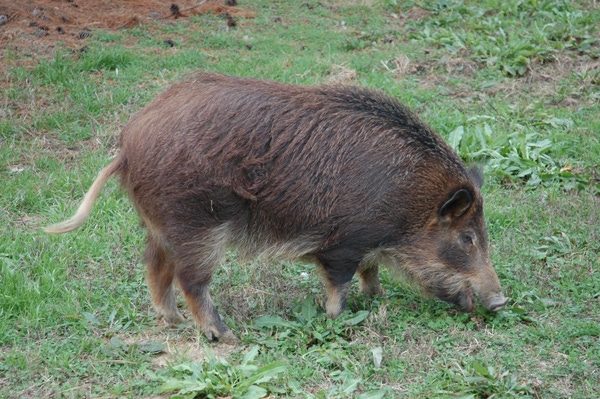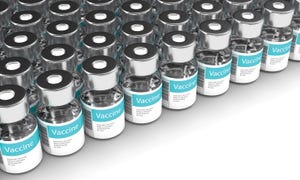North Carolina launches feral swine trap loan program in five counties
State veterinarian working with participating landowners to get trapped pigs tested for disease.
September 27, 2022

A new pilot program through the North Carolina Department of Agriculture and Consumer Services aims to give landowners in five North Carolina counties the tools they need to remove invasive pigs from their land. The 5-County Trap Loan Program, which is now available in Anson, Davie, Haywood, Montgomery and Randolph counties, provides high-tech corral traps that can be borrowed for up to one month. The pilot program is funded through the farm bill and is available to qualifying landholders through August 2023.
"Feral swine are one of the most destructive invasive animals in the country, representing a threat to clean water, food security, wildlife and property," said State Veterinarian Mike Martin. "Their rooting and wallowing behavior can destroy food crops, pollute waterways and devastate natural areas."
The pilot program is part of a national effort to address feral swine and the billions of dollars in damage they cause each year. Interested participants must complete an application and assessment before receiving a trap. The traps include a remote trigger system that allows an operator to monitor the trap with their smartphone in real time and close the gate when the entire group of pigs is inside. Borrowing one of the program's traps is free, but participants are responsible for baiting and monitoring the trap, as well as disposing of any pigs that are captured, although they can request assistance with disposal. By state law, feral swine may not be released alive from any trap.
"We're working with participating landowners to get these pigs tested for disease," said Martin. "There's a lot we're hoping to learn about the kinds and amount of damage they cause here in North Carolina, including the diseases they could spread to livestock."
According to the North Carolina Wildlife Resources Commission, feral swine can be found in isolated areas statewide.
First released in North Carolina by European explorers, today's feral swine are a blend of Eurasian wild boar and domestic stock - genetics that allow them to mature quickly and produce multiple litters a year. This poses a huge challenge for landowners trying to remove them one or two at a time; a mature, pregnant sow that eludes capture can produce as many as 12 piglets in one litter, and those piglets can reach sexual maturity in as little as three months.
"Because they reproduce so quickly, protecting the land from feral swine isn't really about how many you can remove, but rather how many you miss and are left to multiply," said Falyn Owens, the Wildlife Commission's representative on the North Carolina Feral Swine Task Force. "True success requires removing the entire group of pigs, which is exactly what these traps are designed to do."
Decades of sport hunting has had no impact on reducing feral swine populations. Instead, their presence on the landscape has increased, both through intentional releases and management practices that support them. In North Carolina, transporting any swine without approved identification from the NCDA&CS is against the law and can carry a fine of $5,000 per animal.
Officials with the North Carolina Wildlife Commission are asking people to report feral swine sightings, harvests and damage here. The data collected will be sent to the Feral Swine Task Force and used to develop resources and guide future management efforts.
Source: North Carolina Department of Agriculture and Consumer Services, which is solely responsible for the information provided, and wholly owns the information. Informa Business Media and all its subsidiaries are not responsible for any of the content contained in this information asset.
You May Also Like



